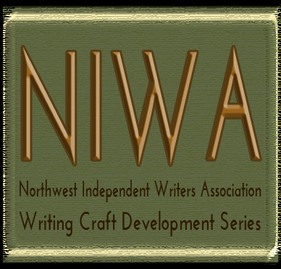 Indie authors are financially responsible for getting their manuscript revised, edited, and proof-read. This can be a costly process as freelance editors are working for a living and expect to be paid for their work. A 70,000 word manuscript can cost from around $700.00 or more to have edited, depending on the services you want. If you can, it’s a good idea to hire an editor because our eyes may skip typos and autocorrect errors in our own work. When we read what we have written, we are immersed in visualizing the scene. Some errors will be missed no matter how hard we try to edit our work because our eyes see what is supposed to be there, rather than the typos or missing words. Many editors offer a service called “Beta Reading” at a much more affordable price. Beta reads are helpful in identifying areas you may want to revise. If you’re a member of a writers’ group, you have a resource of people who will “beta read” for you at no cost. As a member of that critique group, you will read for them too, so be careful how you phrase your comments on their work. Be accurate and find positive things to point out as well as areas that need work. If you are harsh and dismissive, your work will receive that treatment in return. Regardless, if you are publishing that work, you are responsible for making the line edits in your work. If you are unable to afford a full professional edit, there is a way to make a pretty good stab at revising your own manuscript, but it is time consuming, which is why an editor’s services are not cheap.
TO BEGIN MAKING GOOD REVISIONS YOU MUST KNOW YOUR BASIC RULES OF GRAMMAR. First, if you aren’t going to hire an editor, you should consider investing in Bryan A. Garner’s Chicago Guide to Grammar, Usage, and Punctuation. This is a resource with all the answers for questions you might have regarding grammar and sentence structure. The basic rules of grammar are like traffic signals. They regulate the flow of our words, making our sentences understandable. A professional author will make a stab at learning a few rules regarding punctuation and will apply them to their work. It doesn’t require perfection, but people who don’t think the common rules matter are doing their work and their reputation a disservice. Readers want to enjoy the book, not struggle through rambling, garbled sentences. Simple Rules for Common Punctuation: Commas: Never insert commas “where you take a breath” because everyone breathes differently. Do not insert commas where you think it should pause, because every reader sees the pauses differently. DO USE COMMAS TO:
We like people to understand exactly what we mean, so we ALWAYS use the Oxford Comma, also known as the Serial Comma. If there are only two things (or ideas) in a list, they do not need to be separated by a comma. I like dogs and birds. If there are more than two ideas, the comma should be used as it would be used in a list. I like dogs, cats, rabbits, and birds. Semicolons: Semicolons are NOT extra-firm pauses; they are connectors. Join two short but related sentences this way:
Avoid comma splices at all cost. Use conjunctions or semicolons to join related independent clauses, not commas.
Colons are used in technical manuals. They can denote lists but are never to be used in the literary narrative: To use the typewriter:
Question Marks: Always use one question mark at the end of an interrogative sentences (a question). “Would you like to go dancing?” It goes inside the quotation marks. Exclamation Marks: These are “power punctuation” and should be used sparingly. They are used for emphasis when the narrative doesn’t express excitement or other intensity well enough. Used to freely, the narrative becomes breathless! Painful! Too much, even! Interrobang (?!) NEVER USE TWO punctuations at the end of a sentence. The interrobang is not an accepted form of punctuation in anything but comic books. The narrative should show the reader that the protagonist is shocked and confused. Dialogue and Quotation Marks: ALL punctuation in dialogue goes INSIDE the quotation marks:
The Ellipsis is NOT Punctuation. It is a symbol showing where words have been omitted. The ellipsis requires punctuation the same as if it were the words it symbolizes, even if it is at the end of a sentence of dialogue. Bryan A. Garner, on page 396 of The Chicago Guide to Grammar, Usage, and Punctuation lists five uses and two misuses of the ellipsis. First, we’ll talk about the uses, listed with examples on page 396.
On page 398, Garner lists two misuses.
Now that you have a quick reference guide to basic punctuation, the next posts will deal with the nuts and bolts of the self-editing process. You will learn how to spot passive phrasing, eliminate inadvertent repetition, correct grammar, and ensuring consistency. Self-editing is not an easy task. It is highly rewarding, though, to put out your best product possible. Over the next few posts, NIWA will give you the tools to make your work as literate and easy to read as possible. *** *** *** *** *** *** *** Connie J. Jasperson is a published poet and the author of nine novels. Her work has appeared in numerous anthologies. A founding member of Myrddin Publishing Group, she can be found blogging regularly on both the craft of writing and art history at Life in the Realm of Fantasy.
2 Comments
Leave a Reply. |
Archives
January 2023
Categories |
 RSS Feed
RSS Feed